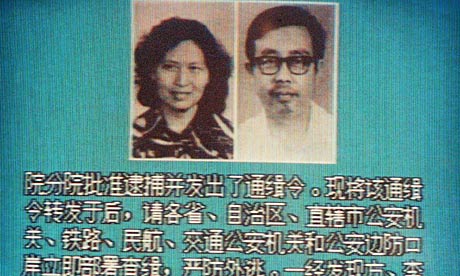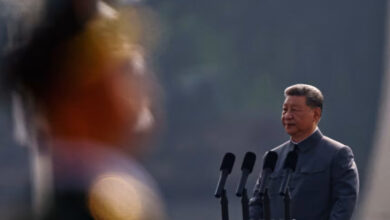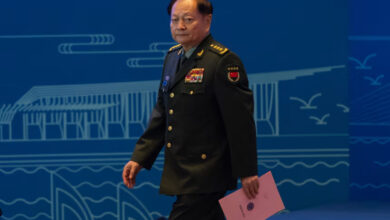
Fang Lizhi, one of China's best-known dissidents whose speeches inspired student protesters throughout the 1980s, has died in the United States, where he fled after China's 1989 military crackdown on the pro-democracy movement. He was 76.
Once China's leading astrophysicist, Fang and his wife hid in the US Embassy for 13 months after the crackdown. In exile, he was a physics professor at the University of Arizona in Tucson.
Fang's friend and fellow US-based exiled dissident Wang Dan wrote on Facebook and Twitter that Fang's death Friday in Tucson was sudden and that he learned of it from Fang's wife. Wang confirmed his comments to AP in Beijing but declined an interview.
"I hope the Chinese people will never forget that there was once a thinker like Fang Lizhi. He inspired the '89 generation, and awoke in the people their yearning for human rights and democracy," Wang wrote. "One day, China will be proud to once have had Fang Lizhi."
"Fang is my spiritual teacher, his death is a major blow to me. At this moment, my grief is beyond words," Wang wrote.
Fang's wife Li Shuxian did not immediately respond to an email seeking comment Saturday.
The son of a postal clerk in Hangzhou, Fang was admitted to Beijing University in 1952, at age 16, to study theoretical physics and nuclear physics. He became one of China's pioneer researchers in laser theory.
He burst into political prominence during pro-democracy student demonstrations of 1986-8 when he became China's most outspoken and eloquent proponent of democratic reform.
Authorities alleged his speeches to students at the University of Science and Technology, where he was vice president, incited unrest.
Fang was expelled from the Communist Party and fired from his university post. But he refused to be silenced and he received letters of support from across the country almost daily.
After the June 4, 1989 military crackdown that crushed the seven-week pro-democracy movement, Fang and his wife fled into the US Embassy. Fang and Li had both been named in Chinese warrants that could have carried death sentences upon conviction. American diplomats refused to turn them over to Chinese authorities.
China's decision to allow the couple to leave the country a year later eliminated a major obstacle to bettering China-US relations, which had deteriorated badly after the crackdown, which left hundreds and perhaps thousands dead.




